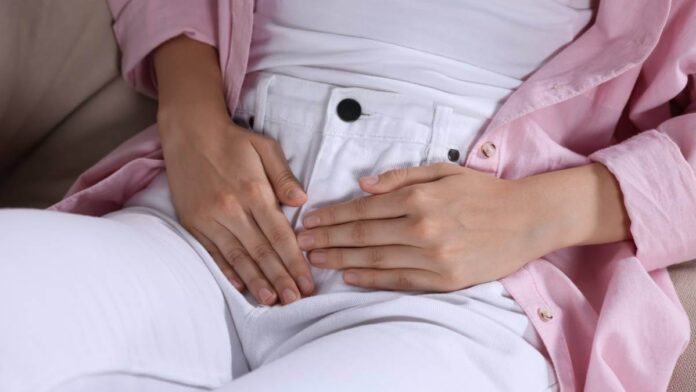When all is well with your body, going for a pee is something you’ll barely think about. When you need to go, you go. And why would you think about it? It’s not exactly a number one topic of interest.
But when things aren’t working as they should in that department, it can quickly turn into a nightmare. If you’ve ever experienced a constant urgency to pee, or a burning sensation when peeing or – worse still – both, you’ll know what I mean.
Symptoms like these are usually the result of a condition that’s not very serious. (That doesn’t make them any less painful or annoying, of course.) Occasionally, though, the feeling of urgency or the burning pee might indicate something more serious.
Is there any way to tell the difference? Sadly, probably not. In fact, it turns out that there’s a whole suite of conditions that can cause almost identical pee symptoms. Here’s a look at some of them.
The painful pee ‘standard’ (at least for women)
One of the most common reasons it can hurt to pee is a urinary tract infection (UTI). As a man in his 50s, I can’t say I’ve ever had a UTI. But others in my close circle have, seemingly almost always women. And there’s a good reason for that feeling. According to the US Office of Women’s Health, women get UTIs up to 30 times more often than men.
To make matters worse, 40 per cent of women who get a UTI will get another one within six months.
The cause? Basically, it’s all in the name – an infection, either viral or bacterial, in the bladder or the urethra. The urethra is the tube through which urine leaves your body. A constant urge to pee and/or a burning sensation when you do are the most common symptoms of this.
You may also notice a cloudiness to your pee, or a change in colour to brown, pink or even red. Your GP will be able to test for this and prescribe antibiotics if required. Fortunately, in most cases, the condition will clear up quickly.
Yeast infection
Yeast might be great for making Vegemite and brewing beer, but it’s a fungus, and fungus growing where it’s not welcome can cause problems. The genital area is one of the areas.
In women, yeast infections can cause itching and burning around your vagina; and cause pain when peeing or during sex. Men with a yeast infection may find the head of the penis inflamed, causing pain, irritation or an itch. A white discharge may accompany these symptoms in both men and women. Treatment is usually straightforward, often via over-the-counter medications.
Kidney stones
I had gallstones once, and the pain was excruciating. By all accounts the pain of kidney stones can be even worse. Kidney stones form when too many minerals, usually calcium, build up in your body, creating – literally – a stone.
While formed in the kidney they can migrate to the bladder, growing as they do so. Large stones can cause blockages, making peeing extremely painful. The pain may also come in waves in your back, between your hips and ribs. Smaller stones can pass on their own, but larger ones may require a hospital visit for surgery.
The painful pee – other causes and solutions
We’ve really only scratched the surface of the causes of pee pain here. Other conditions that can make it hurt to pee include interstitial cystitis (painful bladder syndrome), chlamydia and prostatitis.
There can be more serious conditions, too, such as a tumour, that produce pain when peeing. Tumours are rare, and cancerous ones even more so, but they are possible.
If you have any doubts, see your GP. The topic might not be one you would comfortably broach with friends, but UTIs are extremely common. There is no shame attached to these conditions, and your doctor can help you resolve them, usually relatively quickly.
Also read: What makes you need to pee during the night?
Disclaimer: This article contains general information about health issues and is not advice. For health advice, consult your medical practitioner.


From experience changes or increase in medication can cause problems with urinating. Taking too much medicine in one time rather than spreading it throughout the day or taking plenty of water with it may cause problems. Blood thinners which many of us need to take in later life may create blood in the urine. I find that Ural available over the counter from chemists which helps to neutralise the urine can be useful when the problem isn’t an infection.